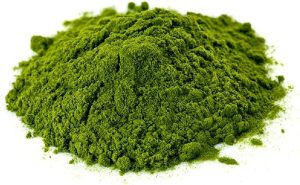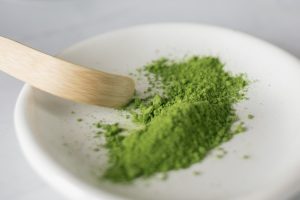
Vitamin B1 (Thiamin)
1. Functions of Vitamin B1 (Thiamin):
- Vitamin B1, also known as thiamin, is a water-soluble vitamin that plays crucial roles in various physiological functions:
- Energy Metabolism: Thiamin is a coenzyme in the metabolism of carbohydrates, helping convert food into energy.
- Nervous System Function: It is essential for the proper functioning of the nervous system and supports the synthesis of neurotransmitters.
- Heart Function: Thiamin is involved in the maintenance of a healthy cardiovascular system.
- Muscle Contraction: It contributes to the proper functioning of muscles.
2. Sources of Vitamin B1:
- Thiamin is found in a variety of foods, including:
- Whole Grains: Brown rice, whole wheat, and oats.
- Legumes: Beans, lentils, and peas.
- Nuts and Seeds: Sunflower seeds and peanuts.
- Lean Meats: Pork, beef, and poultry.
- Dairy Products: Milk and yogurt.
3. Deficiency of Vitamin B1:
- Thiamin deficiency, known as beriberi, can have serious consequences. Symptoms may include:
- Weakness and Fatigue: Generalized weakness and tiredness.
- Muscle Wasting: Loss of muscle tissue and strength.
- Nervous System Issues: Tingling or numbness in the extremities, difficulty walking, and impaired cognitive function.
4. Supplementation of Vitamin B1:
- Supplementation is generally not needed for individuals with a balanced diet. However, it may be recommended for those at risk of deficiency due to certain medical conditions or dietary restrictions.
5. Toxicity of Vitamin B1:
- Thiamin is water-soluble, and excess amounts are usually excreted in urine, resulting in a low risk of toxicity. There is no established tolerable upper intake level for thiamin, as it is considered safe even at higher doses. However, it’s essential to follow recommended dietary guidelines and consult with a healthcare professional before considering supplements, especially in high doses, to avoid potential interactions or adverse effects.
For more detailed information on Vitamin B1, please click here
Vitamin B2 (Riboflavin)
1. Functions of Vitamin B2 (Riboflavin):
Vitamin B2, also known as riboflavin, is a water-soluble vitamin that plays essential roles in various bodily functions:
- Energy Metabolism: Riboflavin is a key component of enzymes involved in the metabolism of carbohydrates, fats, and proteins, contributing to the production of energy.
- Antioxidant Activity: It participates in antioxidant reactions, helping to neutralize free radicals and protect cells from oxidative stress.
- Tissue Maintenance and Growth: Riboflavin supports the maintenance and growth of skin, eyes, and other tissues.
- Vision: It is essential for maintaining healthy eyes and good vision.
2. Sources of Vitamin B2:
Riboflavin is found in a variety of foods, including:
- Dairy Products: Milk, cheese, and yogurt.
- Meat: Lean meats, poultry, and fish.
- Eggs: Especially in the yolk.
- Leafy Greens: Spinach, kale, and other leafy vegetables.
- Whole Grains: Whole grains and enriched cereals.
- Nuts and Seeds: Almonds and sunflower seeds.
3. Deficiency of Vitamin B2:
Riboflavin deficiency is rare in well-balanced diets but can occur. Symptoms include:
- Inflammation of the Mouth and Throat: Known as cheilosis and glossitis.
- Cracks or Sores at the Corners of the Mouth: Angular stomatitis.
- Red, Swollen, and Sore Tongue: Magenta tongue.
- Inflammation and Redness of the lining of the Eyes: Photophobia.
4. Supplementation of Vitamin B2:
Supplementation is generally not necessary for individuals with a balanced diet. However, it may be recommended for those at risk of deficiency, such as individuals with certain medical conditions or dietary restrictions.
5. Toxicity of Vitamin B2:
Riboflavin is water-soluble, and excess amounts are usually excreted in urine, resulting in a low risk of toxicity. There is no established tolerable upper intake level for riboflavin, as it is considered safe even at higher doses. However, it’s essential to follow recommended dietary guidelines and consult with a healthcare professional before considering supplements, especially in high doses, to avoid potential interactions or adverse effects.
For more detailed information on Vitamin B2, please click here
Vitamin B3 (Niacin)
1. Functions of Vitamin B3 (Niacin):
Vitamin B3 comprises niacin and its precursor, niacinamide. These compounds play crucial roles in various physiological functions:
- Energy Metabolism: Niacin is essential for the metabolism of carbohydrates, fats, and proteins, contributing to the production of energy.
- Cellular Respiration: It participates in cellular respiration processes, facilitating the release of energy from nutrients.
- DNA Repair: Niacin is involved in DNA repair mechanisms, supporting genomic stability.
- Skin Health: Niacinamide, a form of niacin, is known for its role in maintaining skin health and has been used in skincare products.
2. Sources of Vitamin B3:
Niacin can be obtained from various food sources, including:
- Meat: Chicken, turkey, beef, and pork.
- Fish: Tuna, salmon, and other seafood.
- Nuts and Seeds: Peanuts, sunflower seeds, and almonds.
- Whole Grains: Brown rice, wheat, and oats.
- Legumes: Lentils and peas.
- Dairy Products: Milk and eggs.
3. Deficiency of Vitamin B3:
Severe niacin deficiency leads to a condition known as pellagra, characterized by the “3 Ds”:
- Dermatitis: Inflammation of the skin, leading to a rash.
- Diarrhea: Gastrointestinal issues, including diarrhea.
- Dementia: Neurological symptoms, including confusion and cognitive decline.
Pellagra is rare in developed countries but may occur in populations with inadequate niacin intake.
4. Supplementation of Vitamin B3:
Supplementation may be recommended for individuals with specific health conditions or dietary restrictions that limit niacin intake. Niacin supplements should be taken under healthcare supervision to avoid potential side effects.
5. Toxicity of Vitamin B3:
High doses of niacin supplements can cause niacin toxicity, leading to symptoms such as flushing, itching, and gastrointestinal issues. The risk of toxicity is generally associated with pharmacological doses used for treating certain medical conditions rather than dietary sources. High-dose niacin supplementation should be done under medical guidance to monitor for potential adverse effects.
For more detailed information on Vitamin B3, please click here
Vitamin B5 (Panthotenic Acid)
1. Functions of Vitamin B5 (Pantothenic Acid):
Vitamin B5, also known as pantothenic acid, is a water-soluble vitamin that plays essential roles in various physiological functions:
- Energy Metabolism: Pantothenic acid is a component of coenzyme A (CoA), which is involved in the metabolism of carbohydrates, fats, and proteins, contributing to energy production.
- Synthesis of Fatty Acids: It is essential for the synthesis of fatty acids, which are crucial for various cellular processes.
- Coenzyme A (CoA) Formation: Pantothenic acid is a precursor to CoA, a coenzyme that participates in numerous biochemical reactions, including the citric acid cycle.
- Cellular Function: CoA is involved in the synthesis of various molecules necessary for cell function and structure.
2. Sources of Vitamin B5:
Pantothenic acid is found in a variety of foods, including:
- Meat: Chicken, beef, and pork.
- Whole Grains: Brown rice, whole wheat, and oats.
- Legumes: Lentils and peas.
- Dairy Products: Milk, yogurt, and cheese.
- Eggs: Especially in the yolk.
- Vegetables: Broccoli, avocados, and sweet potatoes.
3. Deficiency of Vitamin B5:
Pantothenic acid deficiency is rare, as it is widely distributed in foods. However, severe deficiency can lead to symptoms such as:
- Fatigue: Due to its role in energy metabolism.
- Irritability: Emotional disturbances.
- Neurological Symptoms: Numbness and tingling in extremities.
4. Supplementation of Vitamin B5:
Supplementation is generally not needed for individuals with a balanced diet. Pantothenic acid is widely available in various foods. However, supplements may be considered in certain medical conditions or under the guidance of a healthcare professional.
5. Toxicity of Vitamin B5:
There is no established upper limit for pantothenic acid, as it is water-soluble, and excess amounts are typically excreted in urine. Toxicity is rare, and adverse effects are not commonly associated with high dietary intake. However, it’s advisable to follow recommended dietary guidelines and consult with a healthcare professional before considering supplements, especially in high doses.
For more detailed information on Vitamin B5, please click here
Vitamin B6 (Pyridoxine)
1. Functions of Vitamin B6 (Pyridoxine):
Vitamin B6, also known as pyridoxine, is a water-soluble vitamin that plays essential roles in various physiological functions:
- Amino Acid Metabolism: B6 is involved in the metabolism of amino acids, the building blocks of proteins.
- Hemoglobin Formation: It supports the synthesis of hemoglobin, the protein in red blood cells responsible for oxygen transport.
- Neurotransmitter Synthesis: B6 is crucial for the synthesis of neurotransmitters, including serotonin and dopamine, which are involved in mood regulation.
- Immune Function: It contributes to the proper functioning of the immune system.
- Glycogen Breakdown: B6 participates in the breakdown of glycogen into glucose, contributing to energy metabolism.
2. Sources of Vitamin B6:
Vitamin B6 is found in a variety of foods, including:
- Meat: Chicken, turkey, pork, and beef.
- Fish: Tuna, salmon, and trout.
- Fortified Cereals: Some breakfast cereals are fortified with B6.
- Legumes: Chickpeas, lentils, and beans.
- Nuts and Seeds: Sunflower seeds and pistachios.
- Vegetables: Potatoes, spinach, and bananas.
3. Deficiency of Vitamin B6:
Vitamin B6 deficiency is uncommon but can lead to various symptoms, including:
- Anemia: Due to impaired hemoglobin synthesis.
- Neurological Issues: Numbness or tingling in the extremities, difficulty walking, and cognitive impairment.
- Dermatitis: Inflammation of the skin.
Certain medications, medical conditions, and alcoholism can contribute to B6 deficiency.
4. Supplementation of Vitamin B6:
Supplementation may be recommended for individuals with specific medical conditions that impair B6 absorption or metabolism. However, excessive supplementation should be avoided, as high doses can lead to toxicity.
5. Toxicity of Vitamin B6:
Excessive intake of vitamin B6 from supplements can lead to toxicity, known as vitamin B6 toxicity or pyridoxine toxicity. Symptoms may include nerve damage, numbness, and difficulty coordinating movements. The tolerable upper intake level for B6 has been established, and it’s important to stay within recommended doses. Always consult with a healthcare professional before considering B6 supplementation.
For more detailed information on Vitamin B6, please click here
Vitamin B7 (Biotin)
1. Functions of Vitamin B7 (Biotin):
Vitamin B7, also known as biotin, is a water-soluble vitamin that plays crucial roles in various physiological functions:
- Carbohydrate, Fat, and Protein Metabolism: Biotin is a coenzyme involved in the metabolism of carbohydrates, fats, and proteins, contributing to energy production.
- Cell Growth: It plays a role in cell growth, development, and maintenance.
- Healthy Skin, Hair, and Nails: Biotin is often associated with maintaining the health of the skin, hair, and nails.
2. Sources of Vitamin B7:
Biotin is found in a variety of foods, including:
- Eggs: Especially the yolk.
- Meat: Organ meats (liver, kidney), pork, and beef.
- Fish: Salmon, trout, and sardines.
- Dairy Products: Milk and cheese.
- Nuts and Seeds: Almonds, peanuts, and sunflower seeds.
- Vegetables: Sweet potatoes and spinach.
3. Deficiency of Vitamin B7:
Biotin deficiency is rare and is often associated with specific conditions rather than dietary insufficiency. However, symptoms of deficiency may include:
- Dermatological Issues: Skin rashes, dermatitis, and dry skin.
- Hair Loss: Brittle hair or hair loss.
- Neurological Symptoms: Neuromuscular issues in severe cases.
Certain medical conditions, genetic factors, and prolonged use of certain medications may contribute to biotin deficiency.
4. Supplementation of Vitamin B7:
Biotin supplements are sometimes used to address specific health concerns, particularly those related to skin, hair, and nails. However, supplementation is generally not necessary for individuals with a balanced diet.
5. Toxicity of Vitamin B7:
Biotin is water-soluble, and excess amounts are typically excreted in urine, resulting in a low risk of toxicity. There is no established tolerable upper intake level for biotin, as it is considered safe even at higher doses. However, it’s advisable to follow recommended dietary guidelines and consult with a healthcare professional before considering supplements, especially in high doses, to avoid potential interactions or adverse effects.
For more detailed information on Vitamin B7, please click here
Vitamin B9 (Folate or Folic Acid)
1. Functions of Vitamin B9 (Folate/Folic Acid):
Vitamin B9, which includes both naturally occurring folate and synthetic folic acid, is a water-soluble vitamin with essential roles in various physiological functions:
- DNA Synthesis and Repair: Folate is crucial for the synthesis and repair of DNA, promoting cell division and growth.
- Red Blood Cell Formation: It plays a key role in the production of red blood cells, helping prevent megaloblastic anemia.
- Neural Tube Formation: Adequate folate intake during early pregnancy is critical for proper neural tube formation in the developing fetus, reducing the risk of neural tube defects.
2. Sources of Vitamin B9:
Folate is found in a variety of foods, including:
- Leafy Greens: Spinach, kale, and collard greens.
- Legumes: Lentils, chickpeas, and black beans.
- Citrus Fruits: Oranges, lemons, and grapefruits.
- Avocado: A good source of folate.
- Fortified Foods: Some cereals and grains are fortified with folic acid.
3. Deficiency of Vitamin B9:
Folate deficiency can lead to various health issues, including:
- Megaloblastic Anemia: Large, immature red blood cells due to impaired DNA synthesis.
- Neural Tube Defects: In pregnant individuals, inadequate folate intake can increase the risk of neural tube defects in the developing fetus.
Certain medical conditions, medications, and alcoholism can contribute to folate deficiency.
4. Supplementation of Vitamin B9:
Folate supplementation is often recommended during pregnancy to reduce the risk of neural tube defects. Additionally, individuals with certain medical conditions that interfere with folate absorption may require supplementation. Folic acid supplements are commonly used.
5. Toxicity of Vitamin B9:
Excessive intake of folate from supplements can mask vitamin B12 deficiency symptoms, leading to potential neurological issues. While folate from food sources is considered safe, it’s important to follow recommended dietary guidelines and consult with a healthcare professional before considering folic acid supplements, especially in high doses.
For more detailed information on Vitamin B9, please click here
Vitamin B12 (Cobalamin)
1. Functions of Vitamin B12 (Cobalamin):
Vitamin B12 is a water-soluble vitamin that plays crucial roles in various physiological functions:
- Red Blood Cell Formation: B12 is essential for the production and maturation of red blood cells, preventing megaloblastic anemia.
- DNA Synthesis: It is involved in the synthesis and repair of DNA, contributing to cell division and growth.
- Neurological Function: B12 supports the health of the nervous system and is crucial for the maintenance of the protective myelin sheath around nerve fibers.
- Energy Metabolism: B12 participates in the metabolism of carbohydrates, fats, and proteins, contributing to the production of energy.
2. Sources of Vitamin B12:
Vitamin B12 is primarily found in animal products, including:
- Meat: Beef, pork, lamb, and poultry.
- Fish: Salmon, trout, tuna, and sardines.
- Dairy Products: Milk, cheese, and yogurt.
- Eggs: Especially in the yolk.
Vitamin B12 is generally not found in significant amounts in plant-based foods, so individuals following vegetarian or vegan diets may need to obtain B12 through fortified foods or supplements.
3. Deficiency of Vitamin B12:
Vitamin B12 deficiency can lead to various health issues, including:
- Pernicious Anemia: A type of anemia resulting from B12 deficiency.
- Neurological Symptoms: Numbness, tingling, and difficulty walking.
- Fatigue and Weakness: Due to impaired red blood cell production.
Risk factors for deficiency include age, certain medical conditions (e.g., pernicious anemia, atrophic gastritis), and dietary restrictions.
4. Supplementation of Vitamin B12:
Supplementation with B12 may be necessary for individuals at risk of deficiency, including older adults, those with absorption issues, and those following vegetarian or vegan diets. B12 supplements are available in various forms, including oral supplements and injections.
5. Toxicity of Vitamin B12:
Vitamin B12 is considered safe, and there is no established tolerable upper intake level. Excess B12 is typically excreted in urine. However, it’s important to use supplements under healthcare supervision to avoid unnecessary high doses. There are no known toxic effects of excessive B12 intake from food sources.
For more detailed information on Vitamin B12, please click here
Disclaimer
The information is solely provided for educational purposes. It is not intended to diagnose, treat, cure, or prevent any disease. Seek the advice of your physician or qualified healthcare provider with any questions you may have regarding a medical condition at all times. Never disregard professional medical advice because of something you have read or learned from this article.






